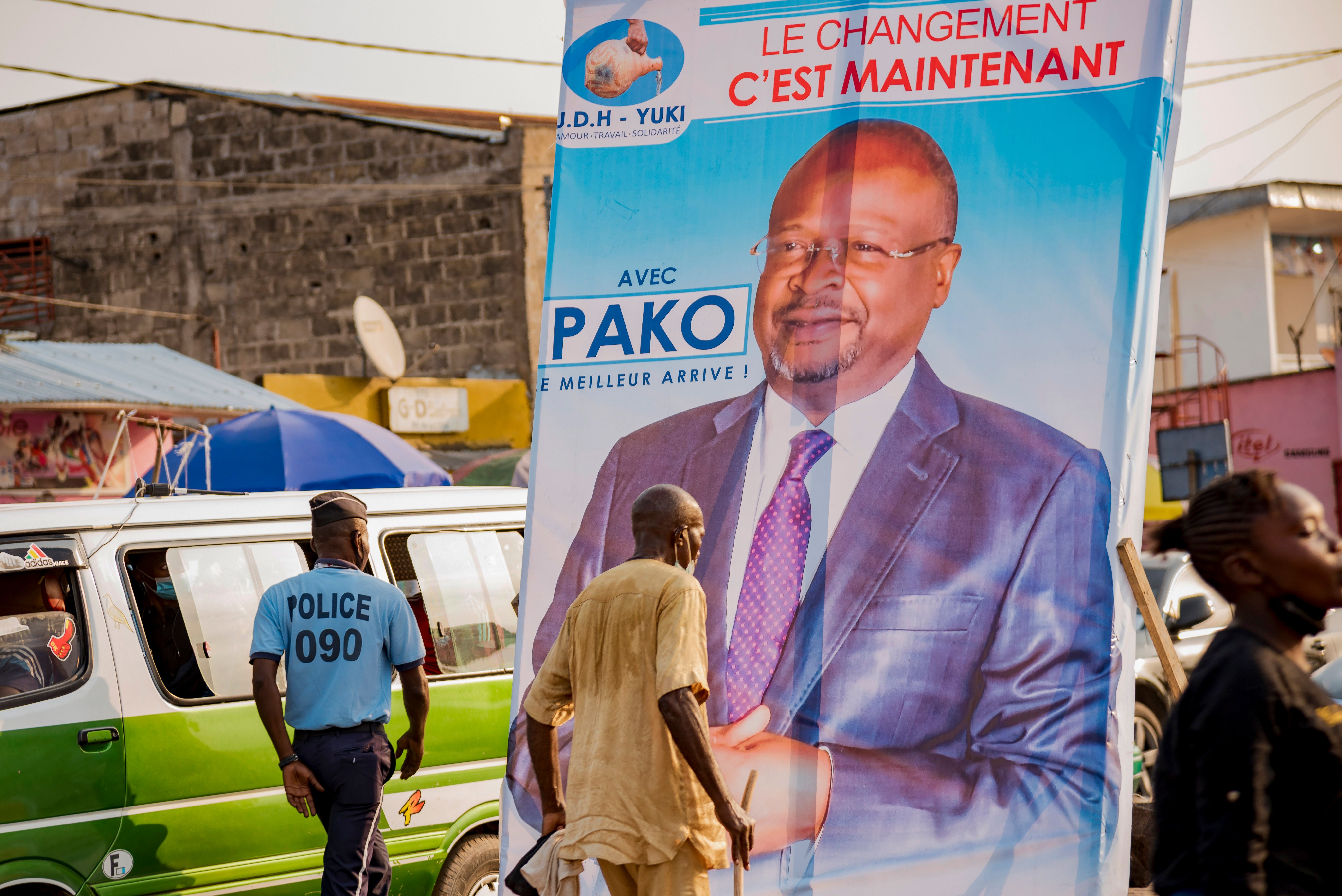After 36 years in power, Rep of Congo's president runs again
After 36 years in power, Republic of Congo President Denis Sassou N’Guesso appears poised to extend his tenure in Republic of Congo

After 36 years in power, Republic of Congo's President Denis Sassou N’Guesso appears poised to extend his tenure as one of Africa s longest-serving leaders in the elections to be held Sunday amid opposition complaints of interference with their campaigns.
The front-runner among the six remaining challengers is Guy Brice Parfait Kolelas, who finished second during the last election in 2016 but lacks significant support outside the country's two largest cities.
Kolelas already has complained about being blocked from boarding a plane to make a campaign stop in the north.
“Congo has become a police state," Kolelas said on the campaign trail. "I want to give back some fundamental freedoms to the Congolese people. I want to give hope to the Congolese people.”
Some civil society groups also have voiced concerns in the lead-up to the vote in this Central African country often overshadowed by its vast neighbor, Congo, which has a similar name.
“We have serious reservations that a peaceful, participatory, transparent, free and credible presidential election can be organized in the current conditions,” the Catholic bishops’ conference said in a statement ahead of the election.
The country's military was allowed to vote early on Wednesday, prompting a few opposition figures to accuse Sassou N'Guesso's party of stuffing ballot boxes.
“The vote of the military is an aberration,” said Anguios Nganguia Engambe, a magistrate candidate. “I know that the same soldiers who are currently voting in uniform will do so on (Sunday) in civilian clothes, since their military status is not mentioned on the electoral list."
The government, though, denied the allegations and said preparations had been made for a free and credible election.
“We have done everything possible to ensure that the distribution of the cards takes place without hindrance throughout the country so that each Congolese can fulfill his civic duty,” Henri Bouka, head of the national independent electoral commission, told The Associated Press.
The 77-year-old Sassou N'Guesso first came to power in Republic of Congo in 1979 and served until the 1992 election when he finished third. He then took hold of the country again as a militia leader after a four-month civil war in 1997 and has been at the helm ever since, winning three elections.
Only the presidents of Equatorial Guinea and Cameroon have served more years on the African continent.
Five months before the 2016 vote, a constitutional referendum removed term and age limits that would have barred Sassou N'Guesso from running again. Deadly violence broke out after that election, prompting thousands to flee their homes.
“The political climate appears much calmer than in 2016. It is as if the opposition has already resigned itself to Sassou N'Guesso winning re-election,” said Maja Bovcon, Senior Africa Analyst at Verisk Maplecroft.
Still, some opposition candidates have cried foul publicly, accusing the ruling party of interference.
“The mayor of Ouesso made the holding of my campaign activities conditional on the payment of a tax. I had to pay it in spite of myself,” opposition candidate Mathias Dzon said on his Facebook page.
Human rights groups have stepped up their criticism of the government since the 2016 vote, which Sassou N'Guesso won with 60% of ballots cast.
Two opposition candidates were later convicted of “undermining the internal security of the state." A third candidate served a jail sentence for inciting public disorder and insurrection.
And in 2018, an army general was jailed on accusations of plotting a coup against the president, with authorities saying he planned "to destroy the presidential plane while in flight.”
Sassou N'Guesso has campaigned on a pledge to launch a vast agricultural development program in this nation of 5.4 million people “in order to put an end to the food dependence of our country.”
“We will create conditions for the rebound of our economy and young people will find employment,” Sassou N’Guesso said during his campaign.
___
Associated Press writer Krista Larson in Dakar, Senegal contributed.
Bookmark popover
Removed from bookmarks